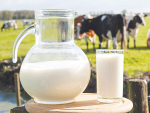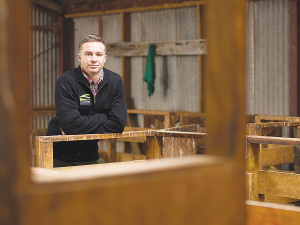The latest Global Dairy Trade (GDT) auction saw WMP prices jump 5.3%. Last week's surprise price rise in the key dairy product - whole milk powder (WMP) - is positive but overall, prices remain in the doldrums.
Westpac senior agricultural economist Nathan Penny points out that in annual terms, WMP and overall prices are still down by 25% and 26%, respectively.
“Recall also that WMP prices fell 18% over August, so the result only partially reverses some of those losses,” he says. “With that in mind, we maintain our 2023/24 milk price forecast at $6.75/kgMS.”
Penny notes that this level is likely to be below the breakeven point for many farmers.
ASB is also sticking to its forecast milk price of $6.60/kgMS. The bank’s Nat Keall notes that the lift in WMP was stronger than the more modest increase anticipated by the futures market but comes after a 15% fall in prices over the season thus far.
“It pleasing to see prices recover a bit of ground, but we are still cautious on the outlook,” he says. “Gains in WMP prices look to have been concentrated in the front end of the contract curve where prices were at their lowest ebb after the sharp falls of last auction.”
Contracts with shipment dates further into the future are still trading at, or even slightly below, the prices they commanded in mid-August.
Keall says interestingly, the bulk of WMP was once again bought by the Middle East and South-East Asia/Oceania, with China’s share of purchases declining after its uptick over the last couple of auctions.
“As by far the dominant player in the market for NZ dairy exports, we still believe a more sustained recovery in Chinese demand is a necessary precursor to a substantial recovery in prices. That still doesn’t look imminent in our view.”
He adds that Chinese economic data remains underwhelming. Consumer confidence remains weak and stimulus measures announced by Beijing thus far look unlikely to be sufficient to turn the tide.
Keall believes that tightening in dairy production may help support prices, but only slightly.



















